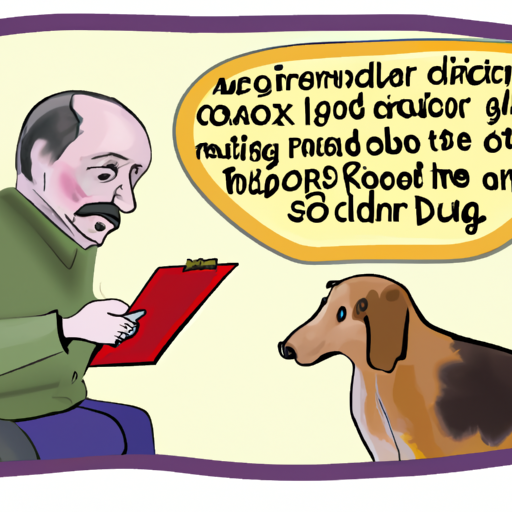1. Understanding Acid Reflux in Dogs
Just like you, your furry friend can also suffer from acid reflux, a condition where the stomach acid travels up the esophagus causing discomfort and potentially serious complications. The pain and discomfort can often leave your pet feeling unwell and distressed.
As a caregiver, it’s important for you to understand the causes of this condition to help your pet avoid it and stay healthy. Let’s dive into some of the main causes behind acid reflux in dogs.
2. Dietary Factors
One of the most common causes of acid reflux in dogs is related to their diet. Just as some foods trigger acid reflux in humans, the same applies to dogs.
- High-fat foods: Foods high in fats are harder for dogs to digest, causing the stomach to produce more acid. This can lead to acid reflux.
- Spicy foods: Just like in humans, spicy foods can also trigger acid reflux in dogs.
- Eating habits: Overeating or eating too quickly can cause your dog’s stomach to be overloaded, leading to acid reflux.
3. Health Conditions
Certain health conditions can make your dog more susceptible to acid reflux. These include:
- Hiatal hernia: This condition occurs when part of the stomach pushes through the diaphragm, potentially leading to acid reflux.
- Gastritis: Inflammation of the stomach lining can increase the risk of acid reflux.
- Obesity: Overweight dogs are more prone to acid reflux as extra weight can put pressure on the abdominal area, causing stomach acid to push up into the esophagus.
4. Medications
Yes, certain medications can cause acid reflux in dogs. If your dog is on any medication, it’s crucial to monitor their reaction to it. If you notice signs of acid reflux, consult your vet immediately. The table below lists some common medications that may cause acid reflux in dogs:
| Medication | Potential to Cause Acid Reflux |
|---|---|
| Painkillers | High |
| Antibiotics | Moderate |
| Sedatives | Moderate |
5. Stress and Other Factors
Just like in humans, stress can also lead to acid reflux in dogs. When dogs are stressed or anxious, their bodies can produce more stomach acid, leading to acid reflux. Other factors such as aging, or pregnancy can also contribute to acid reflux in dogs.
Frequently Asked Questions (FAQs)
Q: Can acid reflux in dogs be cured?
A: Yes, with appropriate treatment and dietary changes, acid reflux in dogs can be managed or even cured.
Q: How can I help my dog avoid acid reflux?
A: Maintain a healthy diet and regular feeding schedule for your dog. Avoid feeding them spicy or high-fat foods, and ensure they don’t overeat.
Q: How can I tell if my dog has acid reflux?
A: Common symptoms include vomiting, loss of appetite, weight loss, and discomfort when swallowing. If you notice these symptoms, consult with your vet.
Remember, as a caregiver, your pet’s health largely depends on you. Be watchful of their diet, behavior, and overall wellbeing to ensure they live a happy, healthy life.



